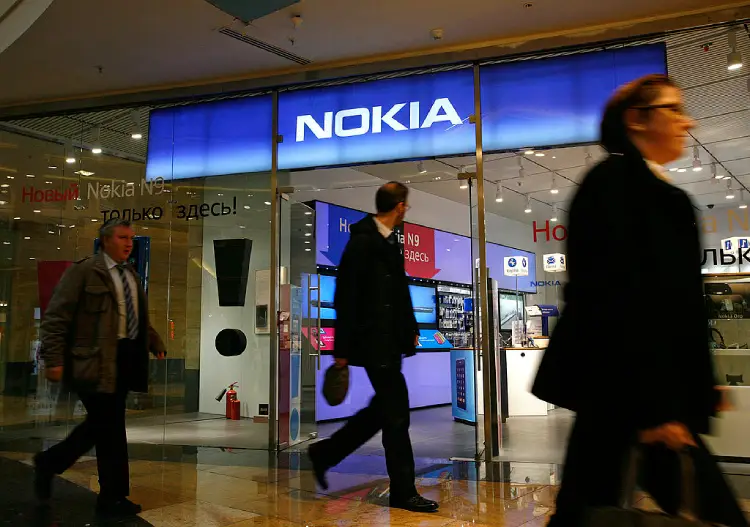
Nokia has become the latest tech company to cut ties with Russia over its war in Ukraine. The Finnish telecoms giant joins a group of 63 technology suppliers that have either withdrawn or suspended business operations in Russia since the war began, according to data compiled by researchers from the Yale School of Management.

Pressure has been mounting on Nokia to leave the Russian market in recent weeks, after a New York Times investigation revealed how the company provided equipment and services to link the country’s SORM surveillance network to the Russian telecom service provider MTS for five years.
Today, the company said it will “aim to provide the necessary support to maintain” critical telecommunication networks in Russia to “ensure the continued flow of information and access to the internet which provides outside perspectives to the Russian people”.
The company described this move as “the most responsible course of action for Nokia” as it withdraws from the Russian market.
Nokia’s exit from Russia is unlikely to significantly affect the company’s operations. The Russian market contributed less than 2% of Nokia’s net sales last year, and it is expected that the company will lose approximately €100m, according to the statement. But a further blow has been dealt to Russia’s tech industry, against a backdrop of wide-ranging sanctions and export controls on critical hardware and software.
Plans for a joint venture with the Moscow-based YADRO to build 4G and 5G base stations announced last November are now scrapped, according to Nokia’s CEO Pekka Lundmark. Around 2,000 workers in Russia would be affected by the exit, with some being “offered work in other parts of the world”.
Which tech companies are still operating in Russia?
At least nine foreign tech companies remain active in Russia, according to the Yale University database. This includes the American cybersecurity company Cloudflare which has thus far resisted calls to exit the Russian market.
In a blog post earlier this month, the company’s CEO Matthew Prince said that Cloudflare was helping Russian citizens circumvent internet controls through its WARP virtual private network service, and described the company’s in-country edge servers as a “frontline against cyberattacks” originating from inside Russia.
“The withdrawal by internet companies can have the unintended effect of advancing and entrenching the interests of the Russian government to control the Internet in Russia,” he added.
According to the Yale data, other foreign tech companies still operating in Russia include US companies Ambarella, Intermedia and MSI, China's Xiaomi, and Israeli cybersecurity provider Check Point.
Yesterday it was reported that Chinese telecoms equipment maker Huawei, which was on the Yale list at time of publication, has suspended new orders in Russia and furloughed its staff there, in anticipation of secondary sanctions against China.






